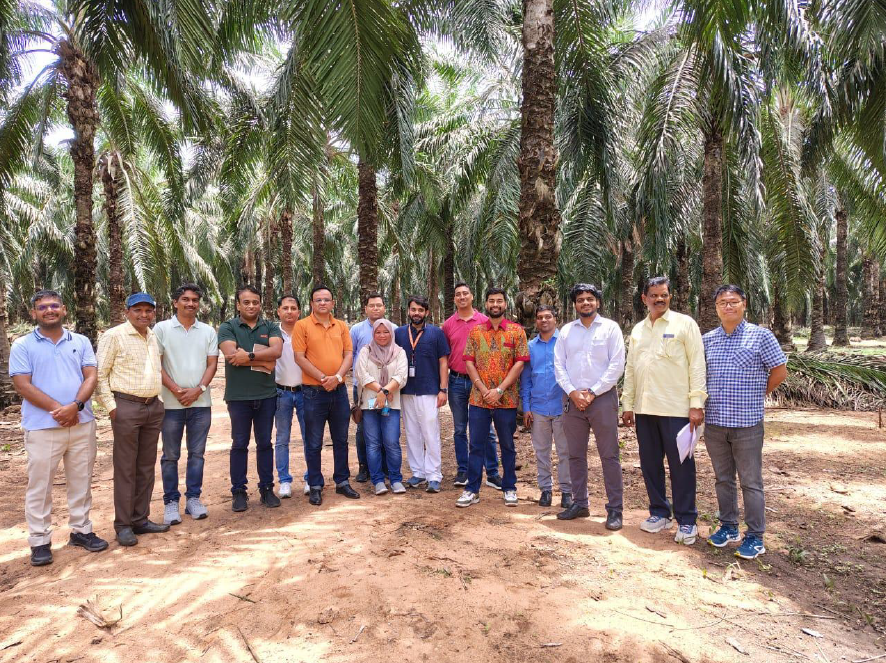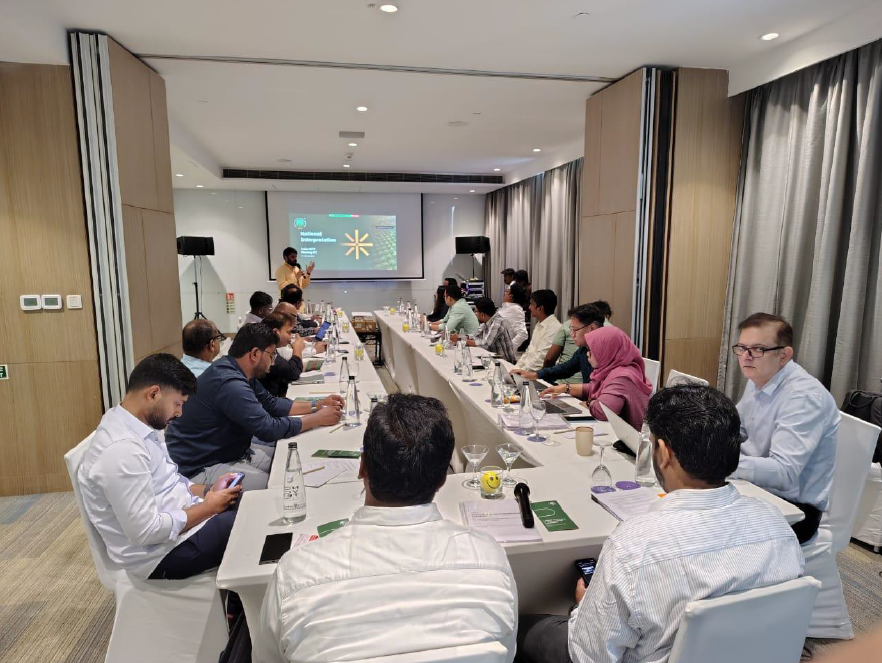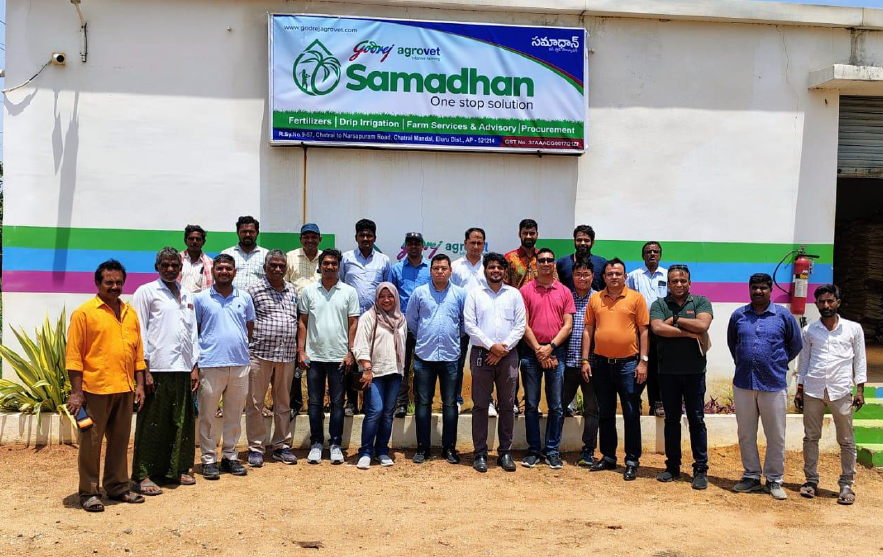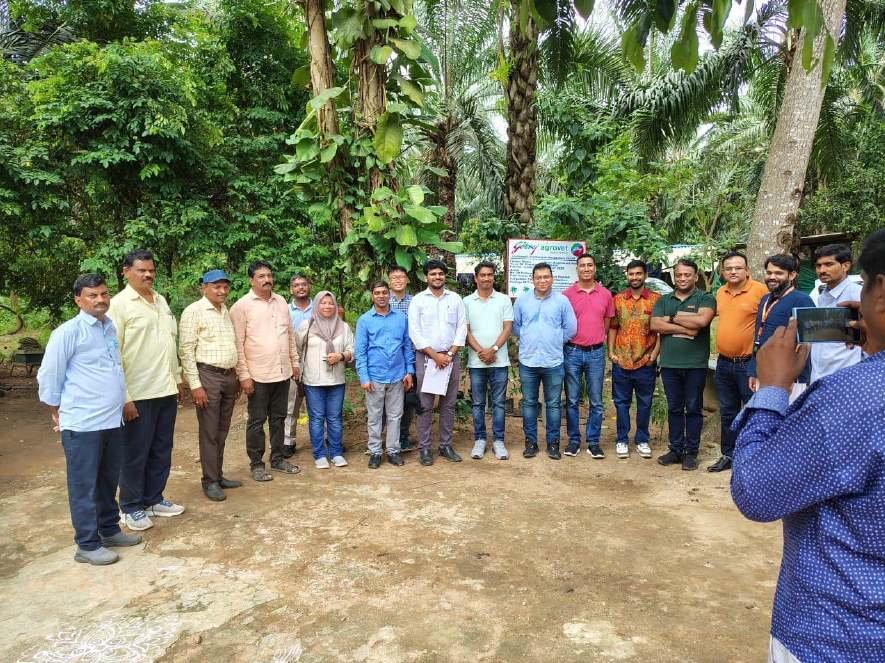As smallholders are key to India’s sustainable palm oil expansion, the first RSPO National Interpretation (NI) Task Force convened stakeholders to advance smallholder certification and unlock opportunities for accessing the global market. A field visit by the Task Force to oil palm plantations offered a closer look at the realities of smallholder farming in India.

As the demand for sustainable palm oil grows in India, certifying Indian smallholder farmers presents a significant opportunity to incentivise their adoption of sustainable practices and grant them access to the global market for sustainable palm oil.
Over recent years, India’s government has taken critical steps to support smallholders in recognition of the key role they play in the country’s expansion of oil palm production. In 2021, the government made critical steps to boost palm oil production, aiming to produce as much as 3 million tonnes of palm oil by 2030 with the launch of the National Mission on Edible Oils – Oil Palm (NMEO-OP) to accelerate production and help increase farmer incomes by incentivising palm oil.
Under the NMEO-OP, the area of oil palm production is projected to increase by more than threefold to 1 million hectares, with an estimated production of crude palm oil (CPO) to 1.125 million tonnes (MT) by 2025-26. As of 2023, the production of CPO stands at ~400,000 MT.
Given that oil palm cultivation in India is carried out exclusively by smallholder farmers, the national mission seeks to improve their livelihoods while reducing the country’s dependence on imports.
Notably, the development of India’s oil palm sector differs significantly from the structure seen in leading palm oil producing countries. These differences include:
- A highly regulated market: The Indian government designates specific operational zones to processors, who are then responsible for establishing mills in those areas and engaging with smallholder farmers to promote oil palm cultivation. Smallholders retain ownership of their land and the freedom to choose which crops to plant.
- Oil palm saplings are a regulated commodity not available on the open market. Smallholders receive saplings only after their land title deeds are verified by both the government and the processor assigned to that district.
- Intercropping of oil palm subsidised by government. During the gestation period, oil palm is intercropped with various crops identified by the Indian Institute of Oil Palm Research (IIOPR). Intercropping often continues in mature plantations, incorporating shade-loving crops such as cocoa, among others.
- Fresh fruit bunches (FFB) prices are set at regular intervals and announced to farmers by the government. These prices are linked to the landed price of crude palm oil (CPO) in India and are regulated under the respective State Governments’ oil palm acts. To shield farmers from global price volatility, the government has introduced a Viability Price (VP), which serves as a guaranteed minimum to ensure sustainable returns.
- Dependence on regional processors. While farmers retain independence in owning their land, choosing crops, and managing their farms, they remain dependent on the processors (mills) assigned to their regions by the government. This unique model guarantees the assured buyback of FFBs.
India National Interpretation (NI) Task Force convenes
As India aims to scale up domestic cultivation of oil palm, the development of the National Interpretation offers an opportunity to align the global RSPO Standards with the Indian context. Leveraging the best practices already being adopted in India, the development of national interpretation for the RSPO framework allows the Indian industry to connect to the global sustainable palm oil market.
In June 2025, RSPO convened the first National Interpretation (NI) Task Force meeting for the RSPO Independent Smallholder (ISH) Standard in India, bringing together several stakeholders, members, and observers from across the palm oil sector.
The NI Task Force was initiated with the intention to fast track the certification of smallholders by contextualising the standards for India. Among the Task Force’s collaborative efforts is contextualising the RSPO ISH Standard for Indian smallholders, ensuring that the principles and requirements reflect the unique realities and challenges faced by growers in the country.
The discussion centred around the four principles of the RSPO ISH Standard, with participants actively engaging in adapting these principles to India’s socio-economic, environmental, and regulatory landscape. From identifying locally relevant indicators to highlighting region-specific constraints and opportunities, the meeting laid the groundwork for a more implementable and impactful interpretation.
The NI process for the ISH Standard in India represents a significant milestone for RSPO’s vision of making sustainable palm oil accessible and achievable for smallholders. By anchoring the standard in real-world conditions and fostering broad stakeholder participation, the task force paves the way for an interpretation that is not only rigorous but also practical.
Field visits offer look at smallholder realities
To complement the technical discussions, the task force visited oil palm plantations and the Godrej Agrovet Samadhan Centre on 18 June 2025. The field visit offered participants a closer look at oil palm cultivation across varied farm sizes, showcasing the realities of smallholder farming in India.
Interacting directly with farmers and plantation workers, the group gained a deeper understanding of the day-to-day challenges and aspirations of growers. The visit to the Samadhan Centre, an agri-extension initiative by Godrej Agrovet, also provided a window into the kind of support systems that exist to help smallholders adopt better agronomic practices, access inputs, and improve productivity.
As India continues to expand its oil palm footprint, this initiative represents a crucial opportunity to align growth with sustainability, ensuring that smallholders are not left behind but are instead positioned as key agents of positive change.


Public consultation now open
RSPO welcomes all stakeholders to participate in this public consultation on the Indian National Interpretation of the ISH Standard and provide feedback on the development of the interpretation for India.
For information on the public consultation on the Indian National Interpretation, click here.

Keep reading

Book Your Slot for the Additional prisma Clinic Session at RT2025

Advancing Jurisdictional Certification in Sabah: Strengthening Collaboration Between RSPO, UNDP, and Jurisdictional Approach System for Palm Oil (JASPO)
Call for Expression of Interest: Independent Investigation of a Complaint

Leading Labels: RSPO Among Top Sustainability Labels in Dutch Market

The 21st International Oil Palm Conference Successfully Took Place in Cartagena, Colombia

Top Performers of the 2025 Shared Responsibility Scorecard

ACOP 2024: RSPO Market Trends Resilient Despite Global Challenges

RSPO: Actions for the Certification of Sustainable Palm Oil Production




